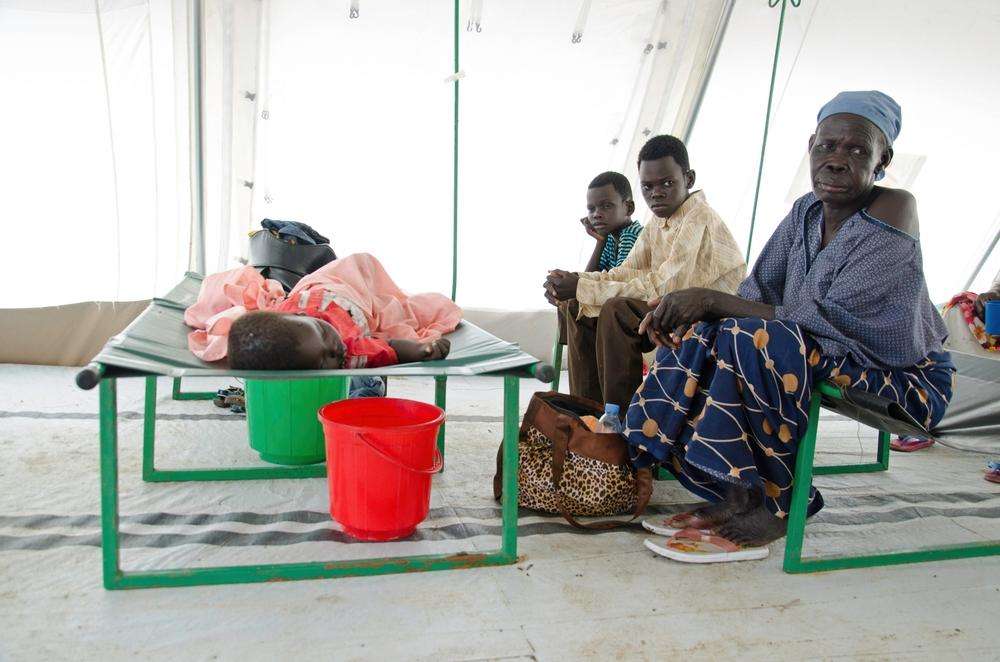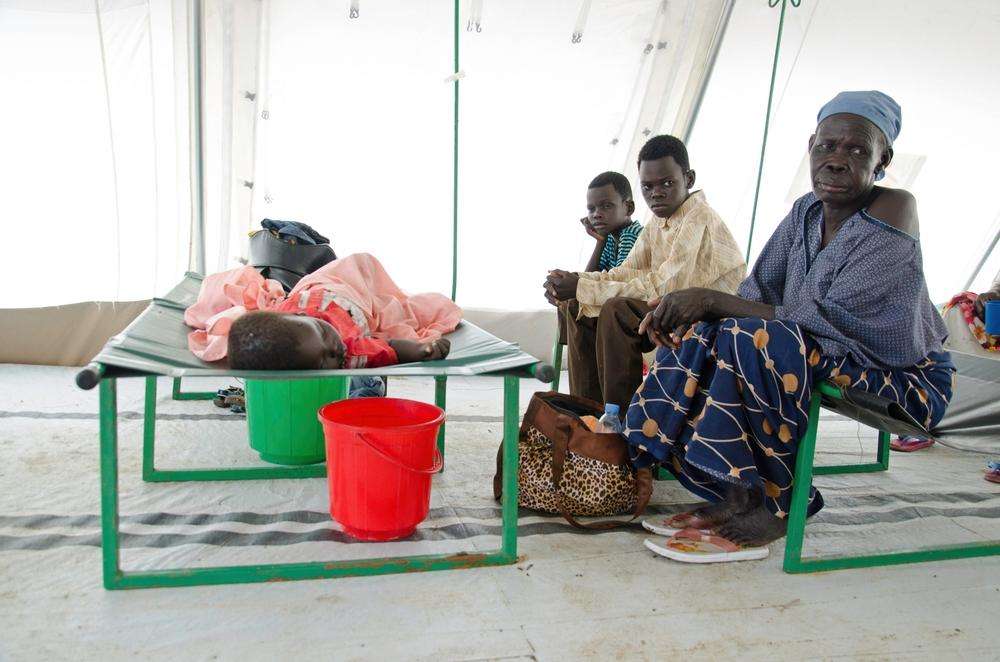"All my grandchildren fell sick. I did not know about cholera sickness or symptoms. I thought this was a normal sickness or due to a change of weather since they just came from Khartoum. When I explained my grandchildren’s sickness to my nearest neighbor, she suggested that this could be a possible sign of cholera. She directed me to come to this Gudele 2 CTC. That is why I am here for two days now. There is great change in the two older children, as you can witness. The vomiting and the diarrhea has reduced. Only my youngest grandchild, Alfred, is still very weak, but I hope the nurses will treat him to be well.
I did not give any bad food to my grandchildren. We drink borehole water, which is not dirty. Possibly, the cholera was caused by the lack of proper toilets and the poor disposal of rubbish, which the children ended up playing with. Children also do not wash their hands after visiting the toilets - that could be the cause of the cholera. People should take care of themselves, especially children who have been touching dirty materials. All should keep their homes clean and boil drinking water.”
Unice Keji's grandchildren were spending six days with her on a visit from Khartoum in Sudan They had reached Juba safely and were not sick during the journey. After two days in Juba, however, the children began to have diarrhea and vomiting and they looked weak. She brought them to MSF’s cholera treatment center (CTC) in the Gudele 2 neighborhood in Juba. All three are suspected of having cholera. The eldest two, Simon and Rizik, were admitted and given oral rehydration solution (ORS). They are still receiving treatment at the CTC, but they have dramatically improved. Their younger brother, Alfred, is still weak with vomiting and diarrhea and is receiving the ORS as well.





